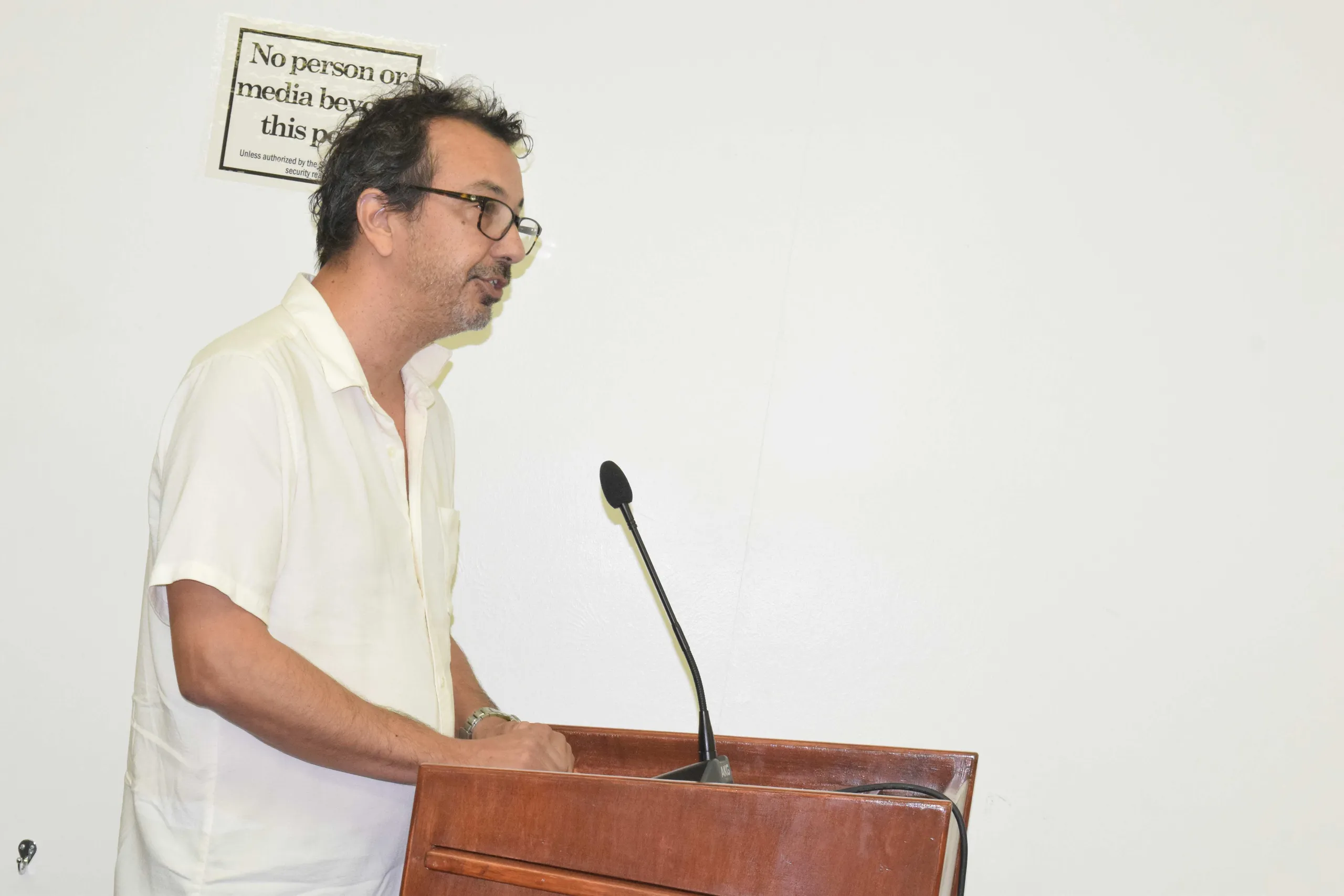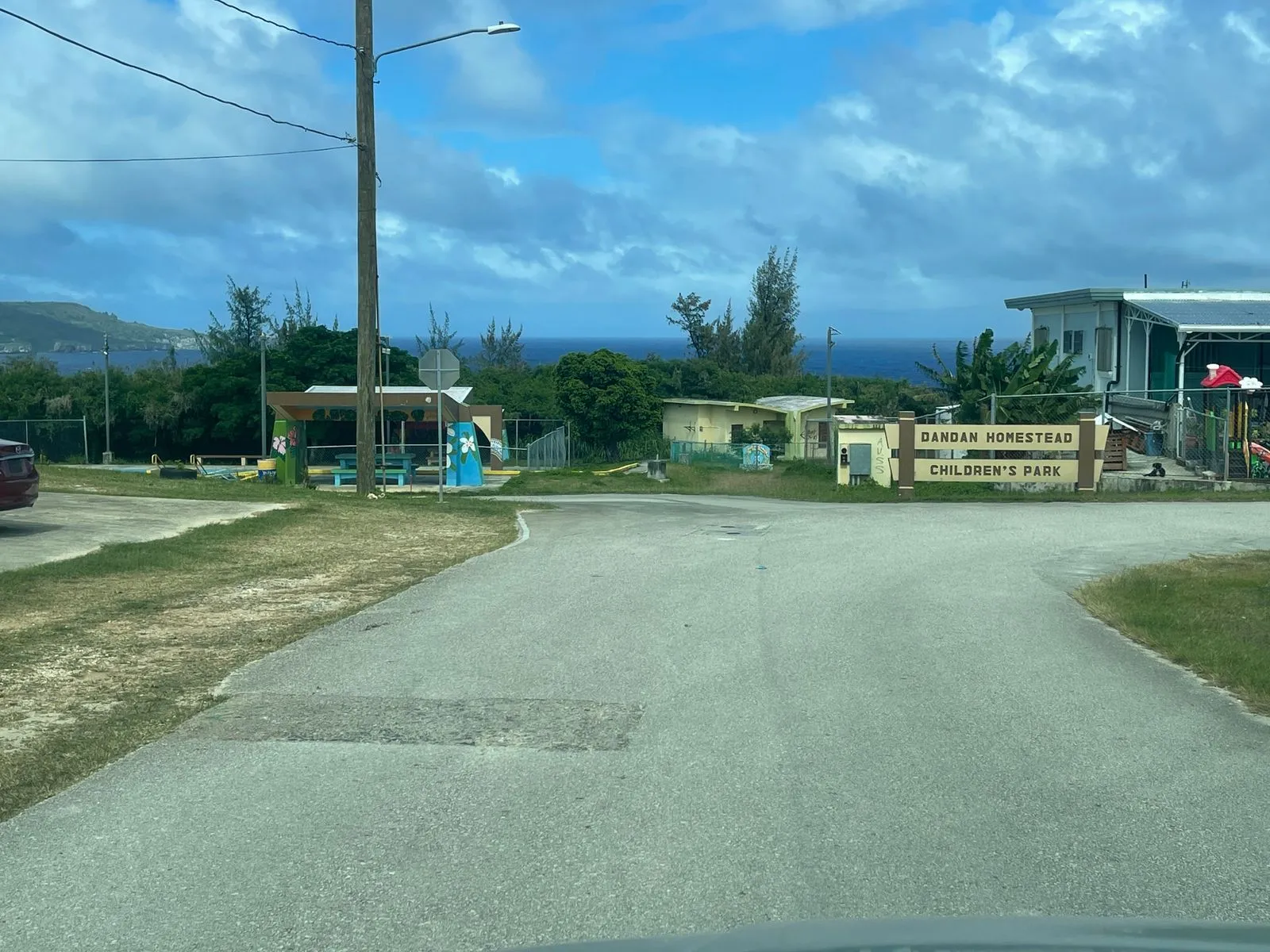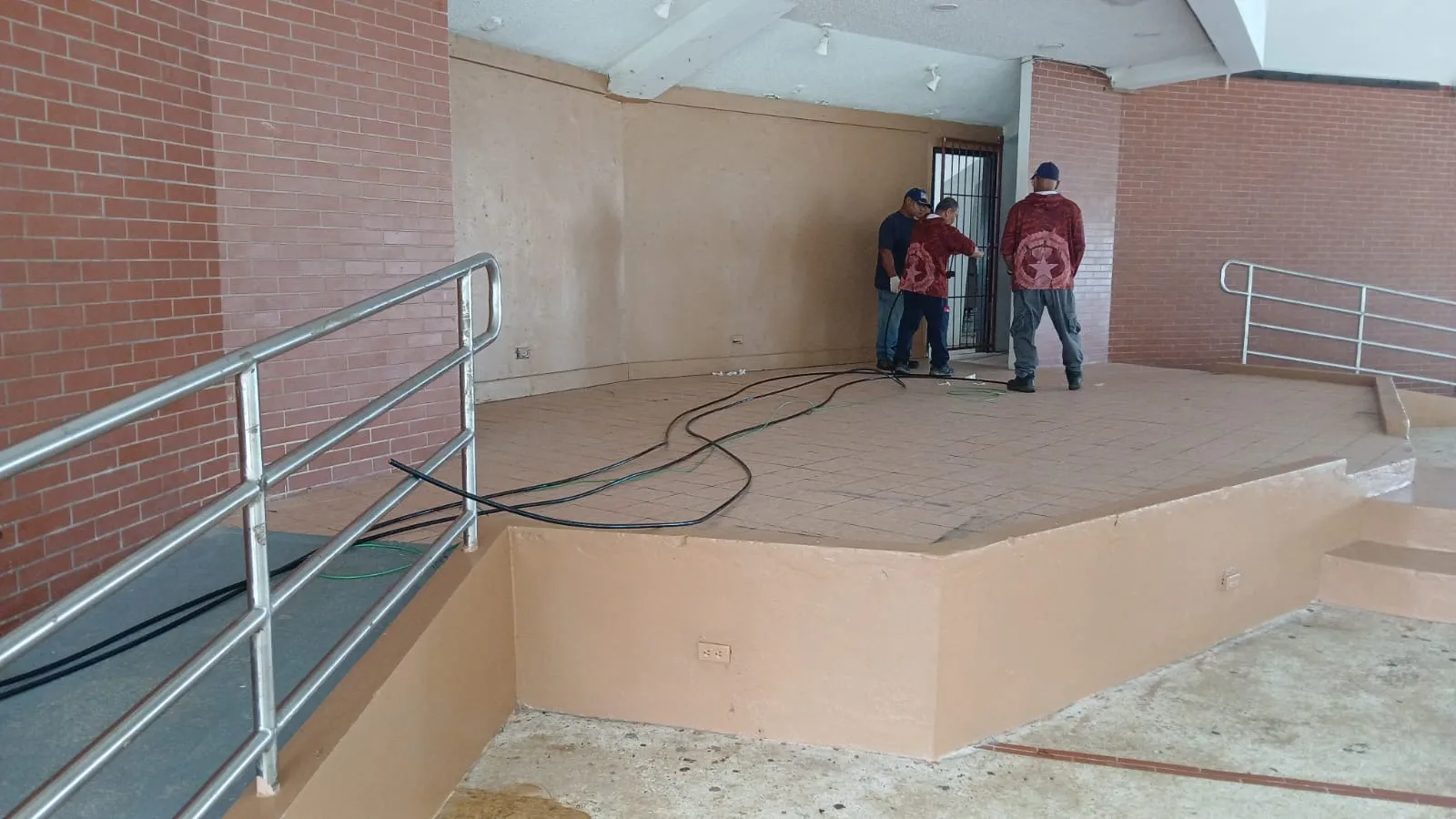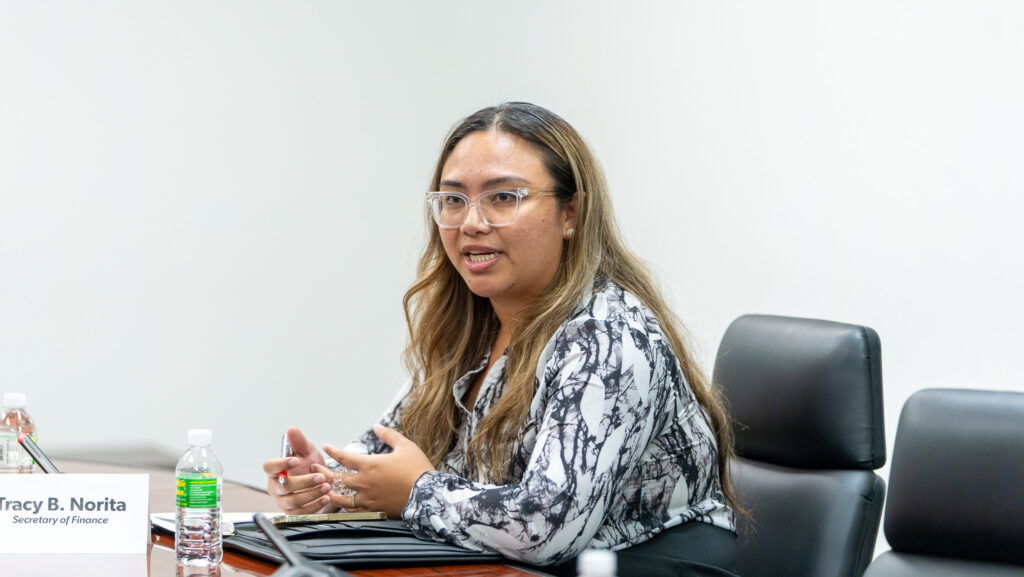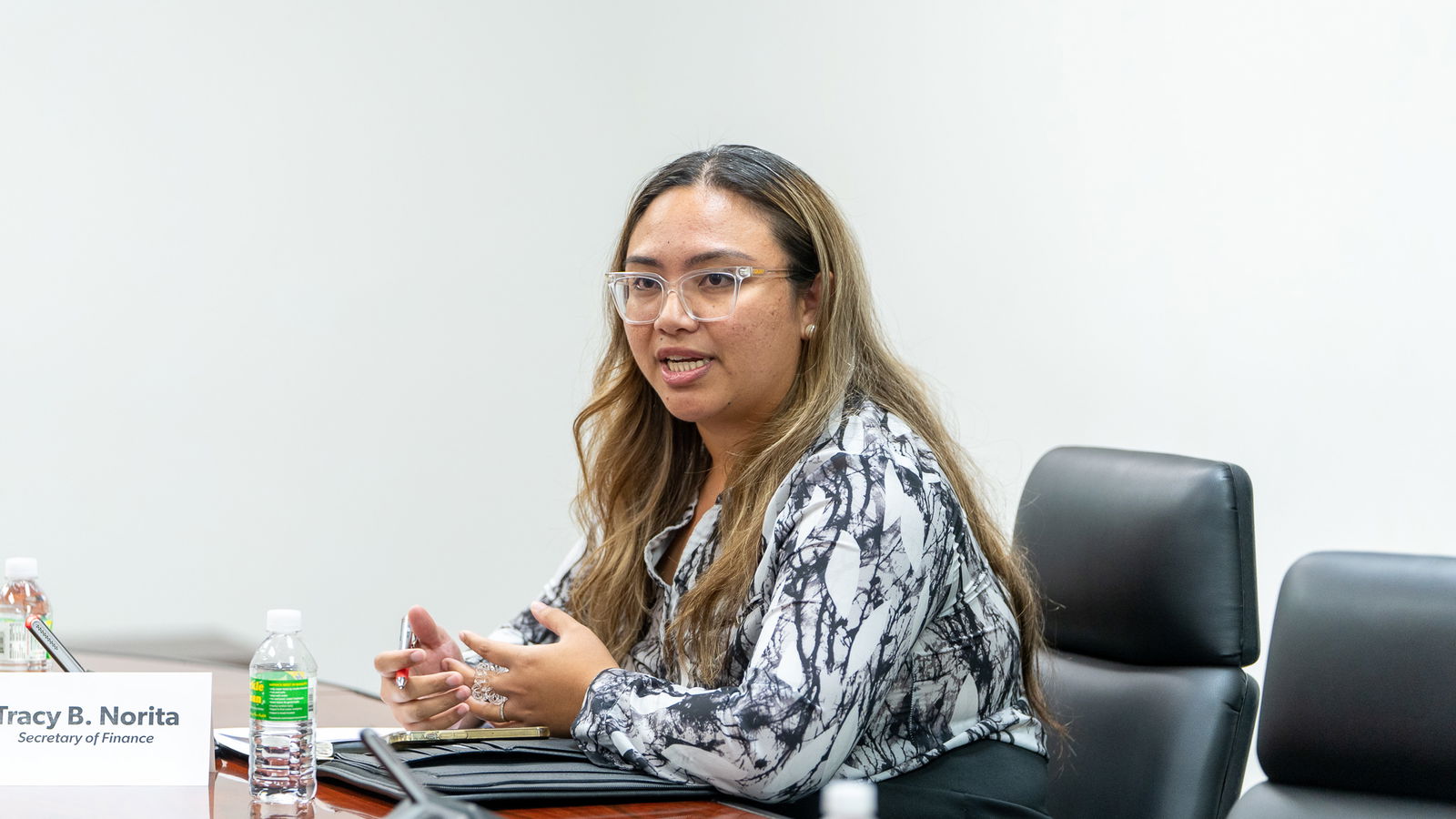
Tracy Norita
THE CNMI government’s revenue for the first quarter of fiscal year 2025 fell short by $2.7 million, the Department of Finance said.
In her report to Senate President Dennis James Mendiola and Speaker Edmund S. Villagomez, Finance Secretary Tracy B. Norita said that as of Dec. 31, 2024, the cumulative gross revenue collections for the first quarter of FY2025 totaled $41.7 million. The target was $44.4 million.
The net total excise tax collection from imported commodities, such as cigarettes, beer and malt beverages, experienced a 50% shortfall. The total excise tax collections in the first quarter amounted to $5.4 million, falling short of the forecast by $5.3 million.
The net total beverage container taxes on soft drinks and alcoholic beverages amounted to $320,213, falling short of the target by 26% or $113,343.
Finance further reported that there was a 40% overall shortfall in other tax areas, particularly hotel occupancy taxes.
But there are “positive performances” as well, Norita said.
The income tax collections, she said, exceeded forecast by 14% ($3.8 million) “driven by strong business gross revenue tax collections.”
Norita said the territorial income tax collection forecast was $471,566, but the actual collections “surged” to $1.6 million, exceeding projections by 229% for the first quarter.
In addition, non-aviation taxes surpassed the cumulative forecast by 58%. However, these increases were offset by a 40% overall revenue shortfall in other tax areas, such as the excise tax and the hotel occupancy tax.
Collections from charges for services, including indirect cost reimbursements and Customs, Immigration, and Quarantine overtime, totaled $747,302, surpassing the $258,908 forecast by 189% or $488,394, by the end of the first quarter.
Debt service
Norita also reported that in December 2024, the CNMI government entered into a pension obligation bond bridge loan agreement with Bank of Guam, amounting to $51 million.
She said it was used to pay off the $20.6 million POB that the government issued in 2020 and to make the required minimum payment to the NMI Settlement Fund, which was $30 million.
Norita said the government must make a monthly payment of $491,000 to the bank starting in December 2024. The bond must be fully paid off by Nov. 2034.
According to Norita, Gov. Arnold I. Palacios’ FY2025 revised budget proposal “addresses the additional resources identified due to the reduction of debt service payments for the fiscal year.”
Norita is urging the Legislature to pass the budget law amendment so that the remaining sources are appropriated according to the governor’s revised budget proposal.
Expenditures
She also reported that the CNMI government spent less than the first quarter allotments. For FY2025, the budget for government operations and personnel was $27.9 million, but actual expenditures totaled $22.8 million, leaving $5 million for first quarter allotments, Norita said.
These expenditures included $200,000 in payments to the Commonwealth Healthcare Corp. for the Health Network Program (medical referrals); $8.4 million to meet the 25% obligation to the Public School System; and a $3.1 million payment to the NMI Settlement Fund to cover the pay periods from Oct. 15, 2024, to Dec. 31, 2024.
From the first-quarter revenue collections, Finance disbursed $980,611, or 80% of the hotel occupancy tax collections, into the Marianas Visitors Authority Trust Fund.
Economic factors
According to Norita, tourism in the CNMI “faced significant challenges” in the first quarter of FY2025 “due to a combination of factors, including the suspension of flights starting October and continuing into November, as well as the tragic Jeju Airlines crash in December 2024.”
She said the flight suspension led to a reduction in available airline seats compared to the same period last year, while the plane crash in Korea, “had ripple effect on the travel plans” of tourists from Korea, the CNMI’s primary market.
Norita said the Jeju Airline incident resulted in the cancelation of Busan charter flights, originally scheduled from Dec. 20, 2024, to Feb. 25, 2025. These would have brought in a total of 20 flights. Instead, only nine flights were operated by the airline to the CNMI. “The suspension of these flights, a key link for South Korean visitors, had an immediate, noticeable impact on visitor arrivals during the first part of the fiscal year,” Norita said.
She said the reduction in flight connectivity from South Korea led to a decline in hotel occupancy rates. Additionally, the cancellation of direct flights from Incheon, coupled with the suspension of the Busan charter flights, “amplified the dip in bookings from the region.”
‘Resilience’
However, despite these setbacks, Norita said the tourism-related businesses in the CNMI “demonstrated resilience.” She said there were cruise ship arrivals that helped “to offset some of the losses in air travel disruptions.”
Norita said that by the end of the first quarter, “efforts were underway to reestablish direct routes and reassure travelers about the safety and reliability of air travel to the region.”
She said as Jeju Airlines resumes regular operations and the industry adapts to these disruptions, “the CNMI is poised to a gradual recovery, with positive growth expected in the coming quarters, as the impacts of the flight suspensions and the Jeju Airlines incident subside.”



